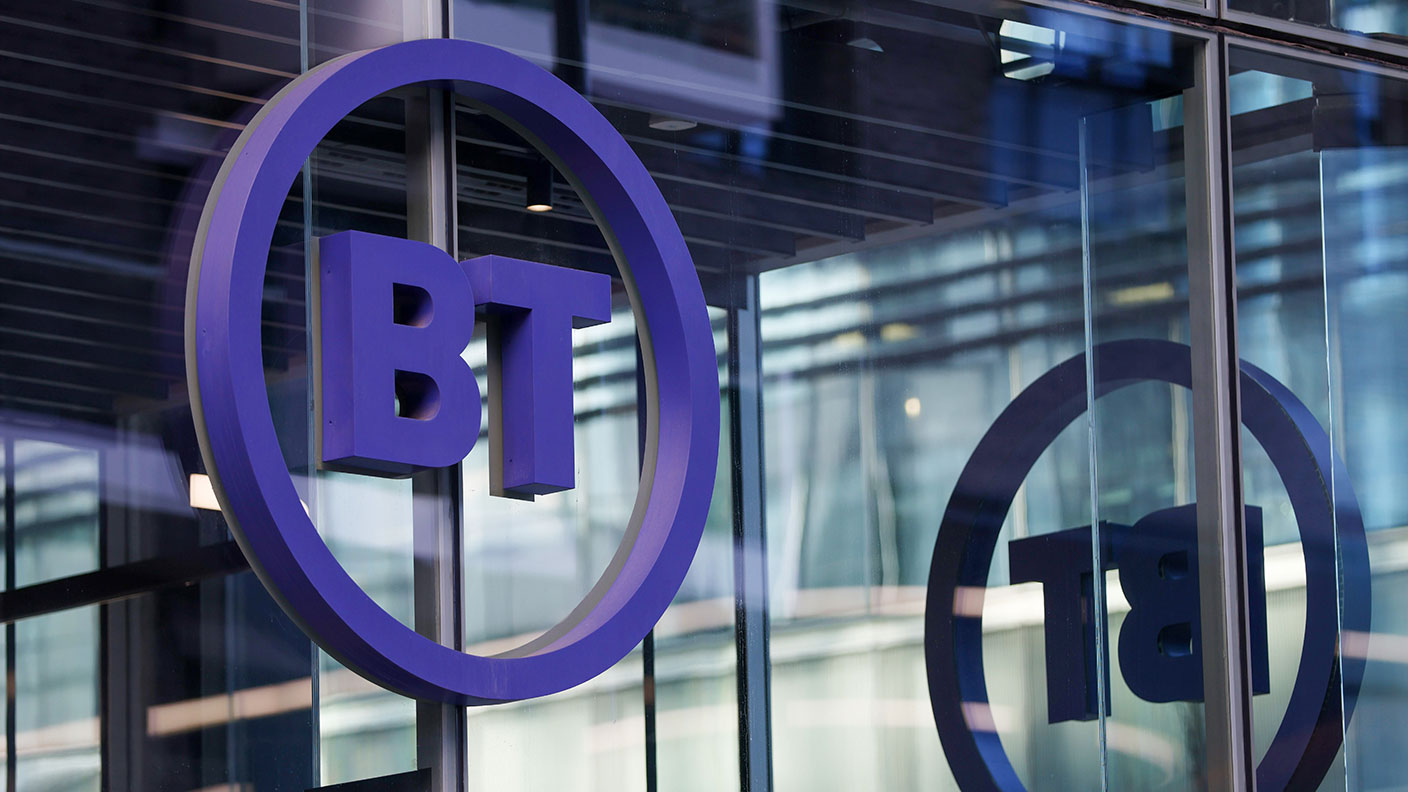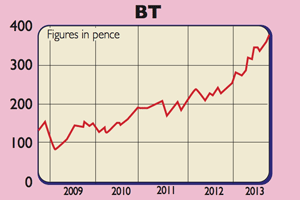Company in the news: BT
BT is a company in rude health, but support for the share is waning, says Phil Oakley.
Get the latest financial news, insights and expert analysis from our award-winning MoneyWeek team, to help you understand what really matters when it comes to your finances.
You are now subscribed
Your newsletter sign-up was successful
Want to add more newsletters?

Twice daily
MoneyWeek
Get the latest financial news, insights and expert analysis from our award-winning MoneyWeek team, to help you understand what really matters when it comes to your finances.

Four times a week
Look After My Bills
Sign up to our free money-saving newsletter, filled with the latest news and expert advice to help you find the best tips and deals for managing your bills. Start saving today!
BT's (LSE: BT.A)latest results released last week show a business that is in rude health. The company's strategy of investing in fibre-optic broadband and football rights looks like it is paying off.
Sales in BT's consumer division have been reinvigorated and the company is generating plenty of surplus cash, which allowed the dividend to be hiked by 15%.
Despite this, it seems that support for the shares is waning. That reflects concerns that the growth in broadband customers is slowing down and fears that BT might start paying silly money in the forthcoming Premier League rights auction.
MoneyWeek
Subscribe to MoneyWeek today and get your first six magazine issues absolutely FREE

Sign up to Money Morning
Don't miss the latest investment and personal finances news, market analysis, plus money-saving tips with our free twice-daily newsletter
Don't miss the latest investment and personal finances news, market analysis, plus money-saving tips with our free twice-daily newsletter
Then there's the big pension fund deficit of nearly £6bn, which might need a chunk of cash to get it under control.
These are legitimate worries, but BT looks as if can cope with them. There are still opportunities to switch existing customers to pricier fibre broadband. Its TV service may get better with the addition of Netflix, potentially tempting people to switch over from the likes of Virgin and Sky.
As far as football is concerned, it's by no means certain that BT will blow a load of cash on aggressive bidding to take more rights from BSkyB.
Meanwhile, the firm's debt is more than £1bn lower than it was a year ago. And the strength of its cash flow gives it scope to invest, top up its pension fund and still grow the dividend.
Verdict: buy
Get the latest financial news, insights and expert analysis from our award-winning MoneyWeek team, to help you understand what really matters when it comes to your finances.
Phil spent 13 years as an investment analyst for both stockbroking and fund management companies.
-
 MoneyWeek Talks: The funds to choose in 2026
MoneyWeek Talks: The funds to choose in 2026Podcast Fidelity's Tom Stevenson reveals his top three funds for 2026 for your ISA or self-invested personal pension
-
 Three companies with deep economic moats to buy now
Three companies with deep economic moats to buy nowOpinion An economic moat can underpin a company's future returns. Here, Imran Sattar, portfolio manager at Edinburgh Investment Trust, selects three stocks to buy now
-
 BT is making progress and the dividend is back – but is it time to buy yet?
BT is making progress and the dividend is back – but is it time to buy yet?Analysis Investors in telecoms giant BT have seen dismal returns over the last 15 years. But there are signs that it is starting to turn things around, says Rupert Hargreaves. So should you buy BT shares?
-
 Football’s £5bn bonanza
Football’s £5bn bonanzaFeatures Competition between Sky and BT for rights to screen the footie has handed a £5bn windfall to the English Premier League. Can that really be a good deal? Simon Wilson reports.
-
Sell your telecoms shares – this merger madness is bound to end in misery
Opinion A lot of money will be spent in the telecoms tie-up frenzy – but much of it will be wasted, says Matthew Lynn.
-
A shake-up for the sleepy telecoms sector
Features The shape of the telecoms sector is changing, as BT's ambitious plans show.
-
Vodafone takes fight to BT
News Telecoms giant Vodafone has vowed to take on BT in the broadband and television market.
-
 Why higher interest rates could be good news for BT
Why higher interest rates could be good news for BTFeatures A rise in interest rates could deliver a nice boost to BT, one of Britain’s largest companies, says Phil Oakley. Here’s why.
-
BT’s football coup
Features BT has made an aggressive move into the pay-TV sector, snatching lucrative football rights from Sky and ITV. But has it paid too high a price? Simon Wilson investigates.
-
 Companies in the news: BT and Merlin Entertainments
Companies in the news: BT and Merlin EntertainmentsFeatures BT has staked its future on Premier League football, and the owners of Alton Towers are floating the company. Is it time to buy? Phil Oakley reports.